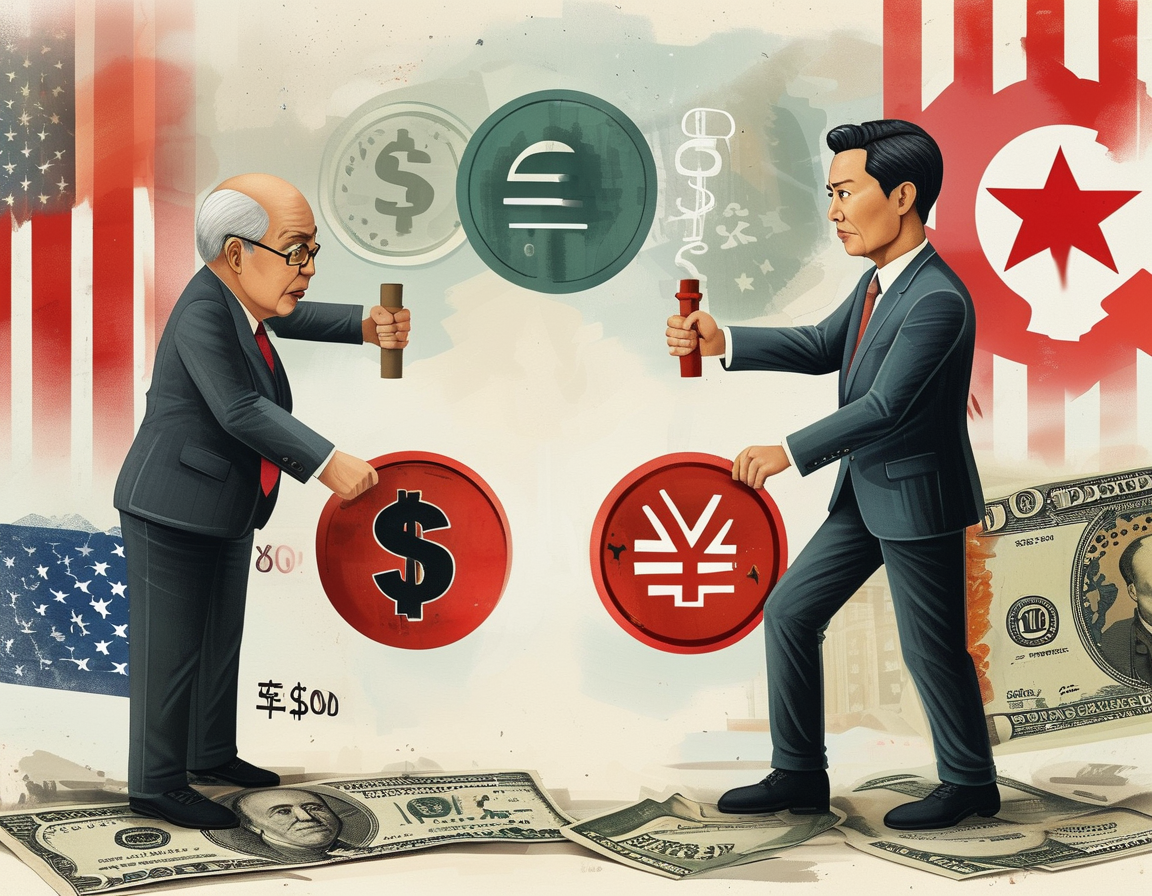
The recent threat from Donald Trump to impose a staggering 50% tariff on goods from China has captured headlines. The stakes are high, not just for the two countries involved, but for global markets as well. As uncertainty looms, many Americans are left asking: how will this affect my wallet?
In a dramatic escalation last week, Trump announced a 34% tax on Chinese imports. This action was supposed to protect American jobs and industries. Yet it also ignited retaliatory measures from Beijing. On social media, Trump urged China to scrap its counter-tariff by Tuesday or face the dramatic hike. But what does this mean for the average consumer?
The implications are enormous. If implemented, a total rate of 104% could be levied on Chinese imports. Imagine a world where everyday items you rely on become significantly more expensive. This could hit Americans hard right at the grocery store. Could you really afford to pay more for electronics and furniture?
As the Chinese embassy lashed out at claims of ‘economic bullying,’ questions around fairness arise. Is this really about safeguarding the US economy? Or is it a mixed bag of showmanship and tension? When both sides dig in their heels, the bigger picture becomes hazy.
China’s response was swift and assertive. They’ve accused the US of unilateralism. It’s a diplomatic chess game where each move could lead to unintended consequences. We must ask ourselves: how long can this tit-for-tat continue before it spirals out of control?
The global markets reacted violently. A sharp drop hit the stock markets as investors digested the news. The Hang Seng index, for instance, took a wild plunge, marking its largest single-day fall since 1997. Investors are skittish. There’s a palpable fear that a full-blown trade war might be on the horizon.
Trump remains undeterred. In his remarks, he expressed confidence that negotiations would lead to favorable agreements for the US. He states that he is committed to placing America first. But how many more tariffs will it take to realize that vision? In the ongoing battle of economics and diplomacy, one wonders if this aggressive strategy will yield lasting benefits.
With tariffs targeting key sectors, expect significant impacts on both countries. The list of Chinese exports affected is vast, including electronics and machinery. At the same time, the US has its own stakes, exporting crucial resources like oilseeds and grains to China. How will these tariffs ripple through our economy?
In the end, it’s ordinary people who bear the consequences of these decisions. Small businesses and families might find themselves grappling with higher costs and fewer choices. As discussions unfold, will there be room for compromise amidst such fervent posturing?
Ultimately, the questions remain significant. As we watch these developments closely, what do you think will happen next? Are we ready for the consequences of this escalating tariff battle?
The world is on edge, and the repercussions could reach far beyond trade. As discussions unfold, every single American should stay informed. After all, this story is just beginning, and it also impacts your daily life.
Leave a Comment